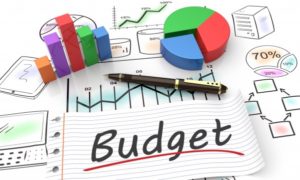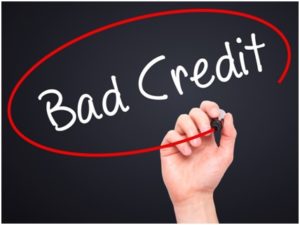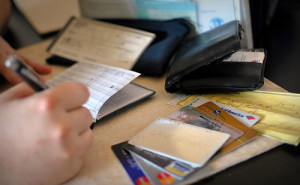5 Simple and Effective Tips For Budgeting in The New Year
 Well, we made it. We’re past the tumultuous year that was 2016 and now 2017 is upon us. What can we expect from this year? It’s hard to say, but one thing we can all afford to do a little better, is budgeting our finances.
Well, we made it. We’re past the tumultuous year that was 2016 and now 2017 is upon us. What can we expect from this year? It’s hard to say, but one thing we can all afford to do a little better, is budgeting our finances.
That’s why today we’re going to look at 5 awesome tips for budgeting yourself in 2017, and ultimately leading yourself to a more successful year than the one that just ended.
5 Strategies For Improving Your Budget in 2017
The overall concept of a budget can be scary, but if you break it down into simple strategies, it becomes a lot easier to see how everything fits together. Here are five ways you can get your budget back under control in 2017:
1. Drop Unneeded Subscriptions
We all have things like a Netflix subscription, and possibly a few others, including that gym membership you keep saying you’ll use. When you look at these monthly spendings, they suddenly add up to a lot more than you would expect. Just a few $20 monthly subscriptions can add another $500 or more to your yearly budget.
If you have more than one video subscription, why not narrow it down to one you can’t live without? As far as the gym goes, you don’t need to pay someone to exercise. Take a walk around your neighborhood, go to the park, heck, even do pushups in your living room. Don’t let me money disappear from your budget on things you don’t use or need.
2. Create Alerts on Your Phone
I am one of those people who gets very forgetful with all the stress of daily life. Simple things like credit card payments would slip by if I didn’t have some kind of reminder in place. Life is complicated, so don’t depend on yourself to simply remember things like these. Set up alerts on your phone that give you a heads up when something is due, so you can take care of it before it becomes late.
Late payments can be detrimental to your credit score, and for some people, they can’t afford to lose any more points off their credit. Thankfully, you can utilize credit repair if you need to with this resource: www.debtsteps.com credit repair companies list.
Either way, keeping yourself on track to pay everything on time will help you budget better in the long run.
3. Break it Down Week-by-Week
If you break your budget down into weekly limits on your spending, you’ll have a better grasp of where you stand on any given day or time in the month. This also allows you to be more in tune with how much you have to spare, if any, on weeks where you might need to take a break and go out one night to reset.
This is why it’s also important to set realistic goals. You can’t completely cut yourself off from the possibility of going out to dinner one night or renting a movie when you’re bored. Financial health is important, but you also have to think about your mental well-being.
4. Make a List (and Stick to It)
Anytime you’re going out shopping for things you need or even things you want, keep yourself in budget by creating a list. For example, let’s say you’re going to the grocery store. You’ll probably be tempted to pick up a few things that are nice, but not completely necessary. We’re all guilty of it, but it can bring up a grocery bill pretty fast.
If you make a list and stick to it, you’ll stay within your budget by a reasonable degree. Most grocery stores also offer the ability to clip digital coupons and use them with your phone number at the register. Take advantage of programs like this to save even more money when you’re shopping.
5. Keep Track of Everything
Our final tip is one that comes straight from my own strategies. I like to keep track of everything in my budget using an online spreadsheet that I customize myself. It allows me to write down all my bills and expenses in one place and keep track of the due dates. When it comes time to pay something, I just utilize the miracle of mobile banking to get it done.
I marked the bills as paid in my sheet and I can refer to it at any time of the month to see where I stand on budgeting. It’s an optional, but very helpful way of keeping track.
Final Thoughts
We’re in a new year, full of new possibilities. It’s time to think about how you can restructure your budget and make this year better than the last. How do you plan on improving your budget this year? Let us know in the comments!
















